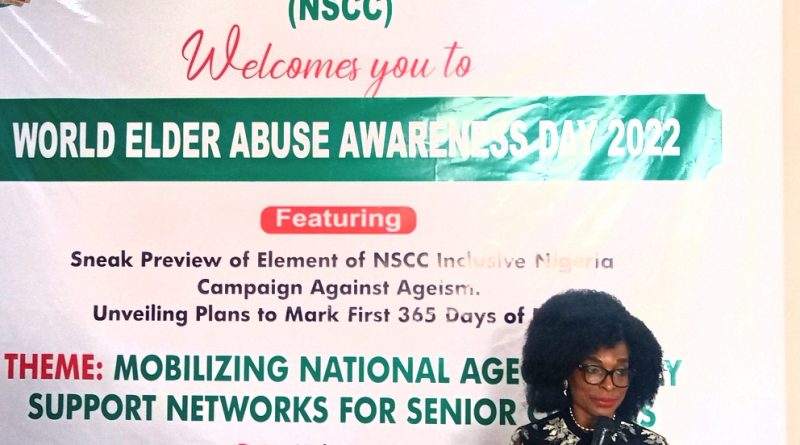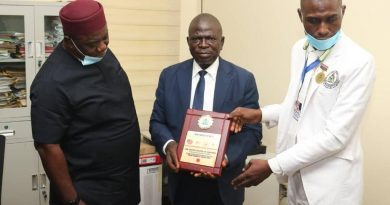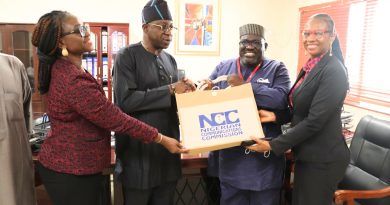WORLD ELDER ABUSE AWARENESS DAY: NSCC Marks Day, Inuagurates Press Corp ……. Ageism is the reason abuse thrives – Dr Omokaro
Oru Leonard
World Elder Abuse Awareness Day (WEAAD), comes up June 15th of every year as instituted the United Nations General Assembly in its resolution 66/127,December 2011, following a request by the International Network for the Prevention of Elder Abuse (INPEA), who first established the commemoration in June 2006. It represents the one day in the year when the whole world voices its opposition to the abuse and suffering inflicted to some of our older generations.
According to the UN publication, the purpose of WEAAD is to provide an opportunity for communities around the world to promote a better understanding of abuse and neglect of older persons by raising awareness of the cultural, social, economic and demographic processes affecting elder abuse and neglect.
The UN defines Elder abuse as “a single, or repeated act, or lack of appropriate action, occurring within any relationship where there is an expectation of trust which causes harm or distress to an older person”. organizations, communities, families, multi- stakeholders including Private sector, Professional bodies, individuals and older persons themselves to incidences of abuse of older persons; to make open discourses of the phenomenon and the various types of abuses including older persons’ self- neglect; the cultural context of abuses; to evaluate progress made in finding transformative institutional and interpersonal solutions.
Here in Nigeria the National Senior Citizens Center (NSCC), ably led by the Director General Dr Emem Omokaro has under year brought the issue of the elderly, ageism and linkage with other MDA’s to bare.
In her remarks during the WEAAD commemoration on Wednesday, she explained,
Ageing is the process of becoming older – it is a progressive change that leads to an increased risk in debility disease and death. Most people are familiar with biological ageing – and progressive functional decline as the human body changes over time. Beyond that there is social and psychological ageing- the way society perceives and treats the older person.Rising life expectancy is a celebration; longevity is a blessing – #AgeingIsLiving – #LiveToAge. However, it comes with its challenges and opportunities. How society defines and perceives ageing and older persons determines how society prepares for the challenges and if it would exploit the opportunities in ageing. Whichever way, population ageing-has profound consequences for every aspect of individual, community, national and international life; positively or negatively.
“For the positive to occur we must combat Ageism-; the negative stereotypes, prejudices and discrimination against older people. Institutional and inter-personal ageism are fundamental factors, that determine ways that governments, non-governmental organizations, and other actors in societies perceive, interact with and care for their older citizens. Ageism is the reason abuse thrives’ Abuse occurs where older persons lose their independence and autonomy – where they are faced with vulnerability and have needs they cannot meet because they are excluded from accessing benefits of development; where the system’s exclusion makes older persons vulnerable” she stated.
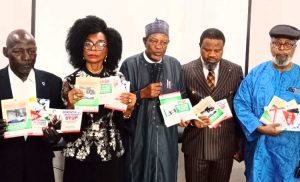
She noted that The theme; Inclusive Nigeria Campaign Against Ageism – Mobilizing National age-friendly support networks for older persons – It draws its fundamental drive from the mission of National Senior Citizens Centre to cause a fundamental positive change in perception , attitude and paradigm about ageing, old age and an inclusive society. The theme has an underlying message that each of us, young and old, has a role to play to improve the quality of life of senior citizens; That, in understanding and promoting positive perspective of ageing and old age and in our fundamental contributions to healthy and dignified ageing, we are raising a standard against older persons vulnerability and abuse ; We have a role to promote solidarity between generations, in combating discrimination against older people, and in building a future of security, opportunity and dignity for people of all ages
“We collectively must be intentional about stopping abuse of older persons; promoting optimistic view of ageing, mobilizing society in their varied sectors and building networks of support for older persons, to optimize the living conditions of older persons. To this end, we need to work together as national, subnational and local authorities, civil society, including non-governmental organizations, the private sector, media volunteers and voluntary organizations, older persons themselves and professional bodies. associations for and of older persons, as well as families and communities.
Problem 1. we must be aware of is firstly that older persons living within communities face many forms of accusations and abuse –especially older women
Problem 2. The abuses are mostly unidentified and under reported leaving them increasingly vulnerable and gaffed
Problem 3. There are no concrete procedures or mechanisms for addressing Elder abuse including access to Justice for remedy and redress
Problem 4. Family and community members are uniformed about what constitutes abuse and how to respond
Problem 5. The multi- sectoral ecosystem of interventions are nonexistence
Why are we not aware of the problems older people face? – it is because of ageism ; older persons are mostly invisible and voiceless.
“We must combat ageism; generate data, develop strategies and actions against abuse of older persons; make an investment case- optimistic view of ageing – continuing contributions of older persons. Every action must be built on legal , policy and programmatic frameworks –for authenticity and sustainability.
“Nigeria is on course now, thanks to the present administration of Muhammadu Buhari CON, for laying the necessary foundation to deal with Ageism and abuse of older persons and a lot is going on; A policy , an act of the National Assembly; a focal agency; Strategic Roadmap a National Action Plan on Ageing and partnerships and engagements mechanisms and the rolling out of programs ; Integration of older persons in development; and providing enabling and supportive environment – advancing in health into ageing, Dr Omokaro ended.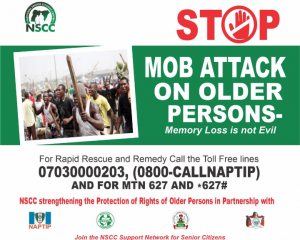
About the NSCC
The mandate of the National Senior Citizens Centre is to Identify the needs of older persons and to cater for them. The vision is an inclusive society where every older person can live a dignifies, secured, healthy, happy and fulfilled life with opportunity to continue to engage in the things they have reason to value and to access long term care . NSCC is working to ensure older persons’ enjoyment of the Rights to happiness, dignity, safety, security and overall ; NSCC mandate addresses. The full realization of all human rights and fundamental freedoms of all older persons; The achievement of secure ageing, which involves reaffirming the goal of eradicating poverty in old age; Empowerment of older persons to fully and effectively participate in the economic, political and social lives of their societies, including through income-generating and voluntary work;
(d) Provision of opportunities for individual development, self- fulfillment and well-being throughout life as well as in late life, through, for example, access to lifelong learning and participation in the community while recognizing that older persons are not one homogenous group; Ensuring the full enjoyment of economic, social and cultural rights, and civil and political rights of persons and the elimination of all forms of violence and discrimination against older persons;
b) Catering for these needs would fundamentally include, acknowledging the increasing spate of abuse of older persons, violence, and neglect and to taking measures to ensure prevention of occurrence of exploitation, violence, abuse and neglect.
c) Ensure the existence laws, policies, and practices including protection services to prevent occurrences of abuse & violence or neglect.
What NSCC is doing –
Public Sensitization & mobilization
Partnerships & Establishment of Ageing Desks in Partner MDAs,
Stakeholders mobilization and Strategy Development
Advocacy Development of IEC materials – Behavioral Change Strategy
Media and Focus Groups Campaigns
Capacity building – community level
Capacity building of NGOs and community focal persons
Capacity Building for Law Enforcement and Policy Influencers-LGAs
Statewide trainings of desk officers
Establishment of the Mechanism/Development of Reporting Templates
Alignment and Adoption of Relevant NBS Case Management and NAPTIP ECO-system
d How do we identify abuse of older persons?
What mechanisms exist to investigate and where appropriate persecute, remedy redress, reassure?
What mechanisms exist to encourage families and communities they live in, to reaffirm the value of older persons establish procedure whereby older persons are assisted and appreciated by community
The Anti- elder Abuse Community Response model is an initiative of the National Senior Citizens Centre (NSCC) and constitutes one of its flagship programs to address the prevalent increase in the cases of elder abuse.
The model is designed to address elder- abuse menace, through providing senior citizens with prompt response to address their complaints, through multi- stakeholder partnerships.
Highlights at the event include; inauguration of NSCC Correspondents Corps; NSCC Inclusive Campaign Against Ageism and Abuse; NSCC and Partners Road show to mobilize age-friendly national support networks for senior citizens; unveiling plans to mark first 365 days of NSCC and the presentation of certificates to Ageing Desk Officers in 32 Ministries, Departments and Agencies.

